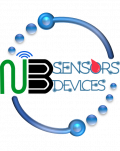| Abstract Submission Deadline | 18th September 2022 |
| Manuscript Submission Deadline | 17th November 2022 |
Over the years, there is an increasing need for the development of simple, cost-effective, portable, integrated biosensors that can be operated outside the laboratory by untrained personnel. Maximum conventional enzyme-based biosensors suffer from low signal amplification and complicated detection protocol. Signal amplification is an important tool for accurate measurement of biomarkers in their very early stage. In this topic, the challenges for the development of a point-of-care test platform for early-stage diseases detection in serum or blood (also noninvasive testing in saliva, sweat, or urine) describe fundamental aspects, developments, and their contribution to the area of biosensors relating relevant aspects of the development of sensors will be highlighted. The main goal of this topic is to use the fundamental knowledge of signal amplification and printed electronics in a portable device for simple and effective point-of-care testing for early-stage disease diagnosis before the extreme stage and can save the patient life. In this proposal, we address the challenges of the development of a point-of-care-test platform. The proposal also describes printed chip-based assay (Lab-on-a-Chip, Lab-on-a-PCB) for rapid, inexpensive, biomarkers detection in real samples. The main challenges of point-of-care testing require implementing complex analytical methods into low-cost technologies. This is particularly true for countries with less developed health care infrastructure. Washing-free, Lab-on-Chip, Lab-on-PCB techniques are very simple and innovative for point-of-care device development. The redox cycling technology will detect several interesting targets at the same time on a printed chip. The proposed areas are inherently cross-disciplinary, combining expertise in biosensing, electrochemistry, electronics & electrical engineering, healthcare, and manufacturing.
Source : https://www.frontiersin.org/research-topics/44157/nanobiotechnology-enabled-point-of-care-devices
